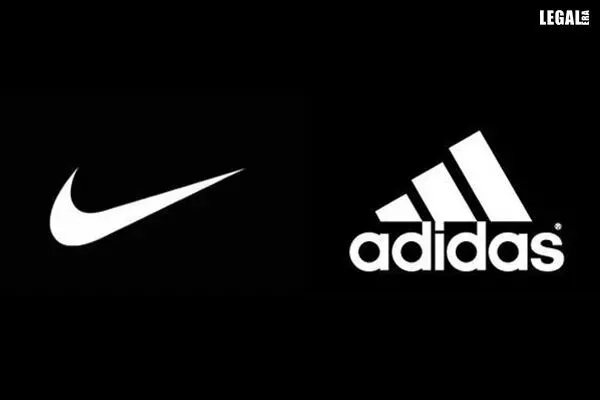- Home
- News
- Articles+
- Aerospace
- Artificial Intelligence
- Agriculture
- Alternate Dispute Resolution
- Arbitration & Mediation
- Banking and Finance
- Bankruptcy
- Book Review
- Bribery & Corruption
- Commercial Litigation
- Competition Law
- Conference Reports
- Consumer Products
- Contract
- Corporate Governance
- Corporate Law
- Covid-19
- Cryptocurrency
- Cybersecurity
- Data Protection
- Defence
- Digital Economy
- E-commerce
- Employment Law
- Energy and Natural Resources
- Entertainment and Sports Law
- Environmental Law
- Environmental, Social, and Governance
- Foreign Direct Investment
- Food and Beverage
- Gaming
- Health Care
- IBC Diaries
- In Focus
- Inclusion & Diversity
- Insurance Law
- Intellectual Property
- International Law
- IP & Tech Era
- Know the Law
- Labour Laws
- Law & Policy and Regulation
- Litigation
- Litigation Funding
- Manufacturing
- Mergers & Acquisitions
- NFTs
- Privacy
- Private Equity
- Project Finance
- Real Estate
- Risk and Compliance
- Student Corner
- Take On Board
- Tax
- Technology Media and Telecom
- Tributes
- Viewpoint
- Zoom In
- Law Firms
- In-House
- Rankings
- E-Magazine
- Legal Era TV
- Events
- Middle East
- Africa
- News
- Articles
- Aerospace
- Artificial Intelligence
- Agriculture
- Alternate Dispute Resolution
- Arbitration & Mediation
- Banking and Finance
- Bankruptcy
- Book Review
- Bribery & Corruption
- Commercial Litigation
- Competition Law
- Conference Reports
- Consumer Products
- Contract
- Corporate Governance
- Corporate Law
- Covid-19
- Cryptocurrency
- Cybersecurity
- Data Protection
- Defence
- Digital Economy
- E-commerce
- Employment Law
- Energy and Natural Resources
- Entertainment and Sports Law
- Environmental Law
- Environmental, Social, and Governance
- Foreign Direct Investment
- Food and Beverage
- Gaming
- Health Care
- IBC Diaries
- In Focus
- Inclusion & Diversity
- Insurance Law
- Intellectual Property
- International Law
- IP & Tech Era
- Know the Law
- Labour Laws
- Law & Policy and Regulation
- Litigation
- Litigation Funding
- Manufacturing
- Mergers & Acquisitions
- NFTs
- Privacy
- Private Equity
- Project Finance
- Real Estate
- Risk and Compliance
- Student Corner
- Take On Board
- Tax
- Technology Media and Telecom
- Tributes
- Viewpoint
- Zoom In
- Law Firms
- In-House
- Rankings
- E-Magazine
- Legal Era TV
- Events
- Middle East
- Africa
U.S. Supreme Court Rejects Nike’s Challenge to Adidas Shoe Patent

U.S. Supreme Court Rejects Nike’s Challenge to Adidas Shoe Patent
The U.S. Supreme Court has refused to hear Nike’s bid to overturn a U.S. Patent Office Tribunal's decision to cancel part of a shoe patent in the American footwear company’s now-settled dispute with German rival Adidas.
The justices passed over the American-Oregon based athletic shoe giant’s claims that the Patent Trial and Appeal Board wrongly stripped it of a patent covering shoelace holes in knitted sneakers.
While challenging the Tribunal’s decision to invalidate the company’s proposed substitute patent elements, it was pointed out by Nike that Adidas had not raised any opposition at that time.
The intellectual property is at the center of a decade-long dispute between the footwear giants over whether Nike owned the method of creating knit sneakers without punching out holes for shoelaces.
In 2012 Adidas had petitioned the Patent Office Tribunal to cancel one of Nike’s patents related to making seamless knitted upper components for athletic sneakers.
After the tribunal agreed to hear the case, subsequently Nike moved to cancel parts of its patent and substitute a less extensive patent claim.
The board granted the cancellation request however, it rejected its bid to amend the patent, quoting an earlier publication in the record that covered the same invention.
As of last year, Nike had filed a third appeal with the U.S. Court of Appeals for the Federal Circuit, which specializes in patent cases. The Court remanded the case twice before rejecting a third appeal by Nike.
In a hearing held in the month of March, Nike told the Supreme Court that the board should not have been allowed to cancel a substitute patent element on its own accord based on arguments that Adidas had not raised at the time.
In a separate ruling, the U.S. Merit Systems Protection Board observed that the Patent Office Tribunal improperly retaliated against administrative judge Michael Fitzpatrick after he protested the Tribunal’s decision to expand and then shrink the size of a panel of officials hearing the Nike case without telling either company.
The Justice Department in May urged justices to consider remanding Nike's case to the Federal Circuit to give the company an opportunity to challenge the patent-invalidity decision based on the Merit Systems Protection Board’s ruling.
As part of its request to the Supreme Court in May, the Justice Department urged the Court to consider remanding Nike’s case to the Federal Circuit in order to give the company a chance to challenge the board’s decision regarding the validity of the patent.



